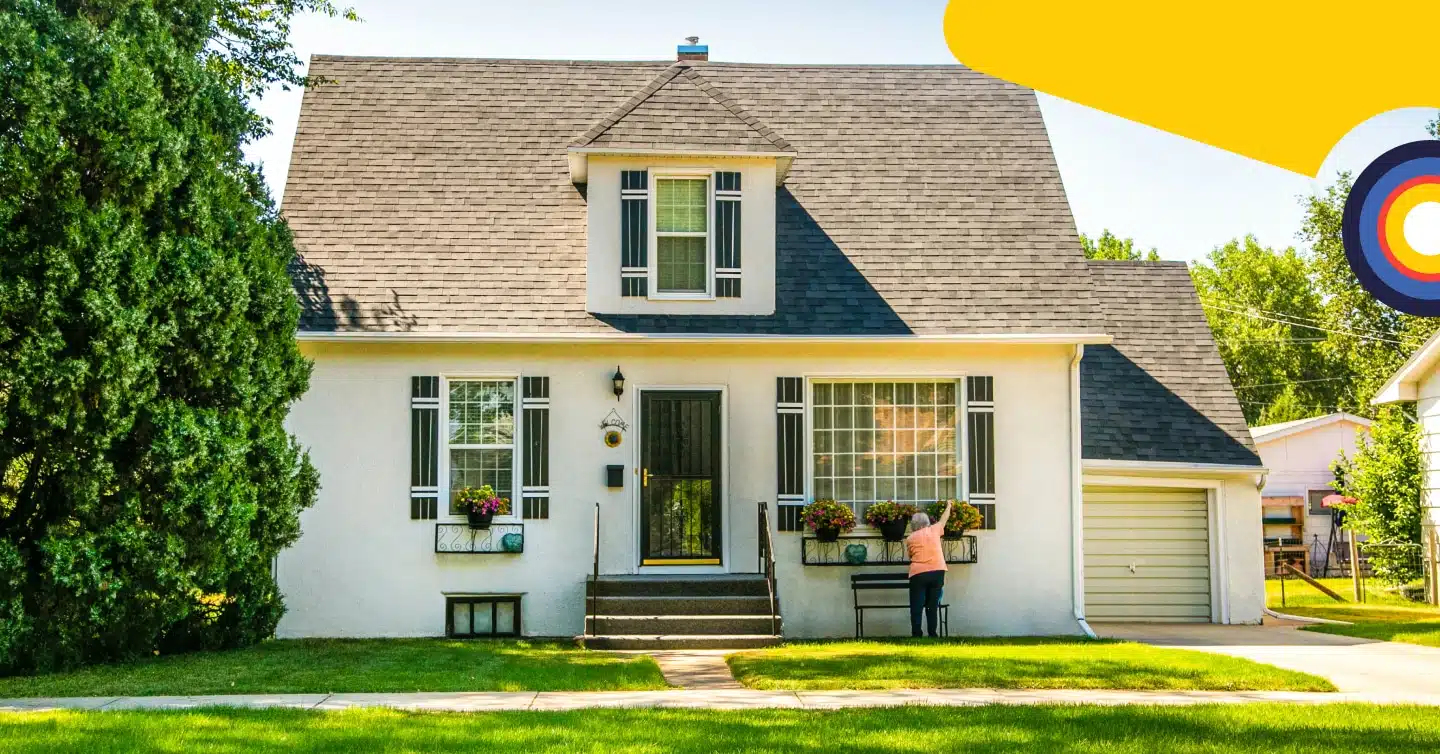Mortgage Basics #Featured articles
Mortgage Basics #Featured articles
What Does It Mean to “Marry the House, Date the Rate”?

Table of contents
“Marry the house, date the rate” has become a popular catchphrase among real estate and mortgage professionals. At its core, this idea means that if you find a home you truly love, you shouldn’t let higher mortgage rates hold you back from buying it. Instead, you can secure the property now and plan to refinance later if interest rates drop.
With housing affordability putting pressure on homebuyers’ budgets, this mindset has started to shape how many Canadians approach their most significant purchase. It can feel reassuring to know you’re not locked into today’s rates forever, especially when you have a strategy in place to revisit your mortgage strategy down the road.
Key Takeaways
- Buying the right property now can make sense for some borrowers, even if rates are elevated.
- Timing the market is nearly impossible, but having a flexible strategy helps you adapt to changes in rates and home prices.
- It’s best to budget as if you’ll keep your initial rate for the long term to avoid financial strain.
What Does “Marry the House, Date the Rate” Mean?
Real estate agents and mortgage professionals often use this phrase to help buyers distinguish between their feelings about the home and their feelings about interest rates. The idea is that your commitment is to the property (marry the house), which you will likely own for many years and should be treated as a long-term investment. Meanwhile, the mortgage rate is a temporary short-term condition (date the rate) that can be changed later.
You’re not locked into the higher cost of borrowing forever. When rates decrease, you can lower your mortgage payments at renewal or refinance sooner to take advantage of lower rates. If you’re financially comfortable with your current payments, you can also consider maintaining the same payment, allowing you to pay off the mortgage more quickly.
Think of it as making a long-term choice, selecting the property in an area where you want to live, raise a family, or invest for your future, while understanding that your financing arrangement is something you can adjust over time. A mortgage can be renewed and refinanced, but a home that meets your needs and feels like the perfect fit is harder to replace.
Why This Strategy Appeals to Buyers
Canada’s housing market has faced significant shifts over the past few years. With the Bank of Canada raising its policy rate to control inflation, borrowing costs increased quickly. Home prices continue to climb, leaving many Canadians worried about affordability and whether it’s better to wait for rates to drop.
Yet waiting comes with risks. Home prices may continue to rise even if rates remain high, and competition may intensify when borrowing becomes more affordable again. This is why some buyers prefer to secure their property now while there is less competition. Buying during periods of softer demand also gives you more negotiating room with sellers, potentially offsetting the higher cost of borrowing.
Find a better rate, and we’ll match it, beat it, or give you $500*.
*Conditions Apply
With nesto, it’s stress-free
Pros and Cons of Marrying the House, Dating the Rate
To decide if this strategy is for you, carefully consider both the benefits and the trade-offs of taking this approach to homeownership. Determine if the pros outweigh the cons and whether this aligns with your budget, purchase timeline, and both short-term and long-term goals.
Benefits for Buyers
- Access to Your Ideal Home: You don’t risk losing out on the right property while waiting for rates to improve. If you’re searching in a market with limited inventory, waiting too long could mean watching prices climb even higher.
- Potential to Refinance: If interest rates decline in the future, you can refinance to reduce monthly costs and save money over time.
- Equity Building: Every monthly payment you make builds equity, allowing you to utilize it in the future for other investments or expenses. Additionally, you should expect your property value to increase when interest rates fall, as more buyers drive up home prices.
Considerations for Buyers
- Qualification Challenges: You must qualify at today’s stress-tested rates, which can limit your purchasing power compared to what you could qualify for if rates were lower.
- Uncertain Timing: There’s no guarantee when or by how much rates will fall. You could end up paying higher payments for longer than expected.
- Refinancing Costs: Breaking your mortgage before the end of the term can trigger penalties and fees that reduce your overall savings.
How to Decide If This Strategy Is Right for You
Making this decision depends on your personal situation, comfort with risk, and financial stability. There isn’t one answer that works for everyone, so it helps to look honestly at your income, expenses, and priorities before moving ahead.
Start by assessing your monthly budget to see how payments at today’s rates fit with your homeownership goals. Then consider your job security, short and long-term goals, and how long you expect to stay in the home.
This strategy can offer peace of mind that you’re building equity rather than waiting on the sidelines. If you feel comfortable managing higher payments for a few years and have the financial cushion for unexpected expenses, buying now could be the right choice. However, if you find yourself stretching your budget to afford payments or feel uncertain about your income or how long you will remain in the property, it may be safer to wait until rates soften.
Frequently Asked Questions (FAQ) About the Long-Term Homebuying Strategy
Is it a good idea to buy now and refinance later?
It can be a smart move if you’ve found the right property and are confident you can handle payments at current rates. The key is to budget carefully and be prepared in case rates don’t come down as quickly as you hope.
How soon can I refinance after buying a home?
Many lenders allow refinancing after six months to a year, but policies vary. Keep in mind that breaking your mortgage early often triggers penalties, so always check your contract and calculate whether refinancing will save enough to cover those costs. If you’re staying with your current lender, consider an early renewal into a lower rate through a blend-and-extend option.
What are the risks of buying a home when rates are high and refinancing when they go down?
The most significant risks are that rates could remain high for an extended period, making it more expensive to renew and less attractive to refinance, or that you may face substantial penalties if you refinance early. It’s important to have a clear understanding of your financial cushion and your long-term plans.
Can I switch lenders when I refinance my mortgage?
Yes, switching lenders when you refinance is possible. As with all refinances, you’ll need to requalify under current stress test rules and cover costs such as legal fees and appraisals. It’s advisable to compare lenders to find the best deal.
Final Thoughts
Choosing to “marry the house and date the rate” is ultimately about balancing your desire for a place to call home with the realities of today’s higher mortgage rates and home prices. It can be a helpful mindset if you’ve found the right property, have confidence in your financial stability, and want to start building equity sooner rather than later.
If you’d like help deciding whether this approach is right for you, contact nesto mortgage experts. Our mortgage experts will walk you through your options, compare today’s rates and penalties, and help you build a mortgage strategy tailored to your long-term plans.
Ready to get started?
In just a few clicks, you can see our current rates. Then apply for your mortgage online in minutes!















